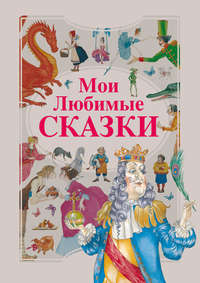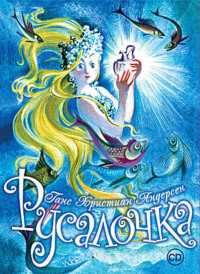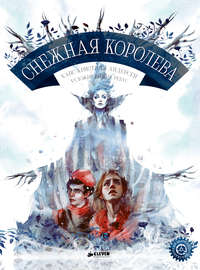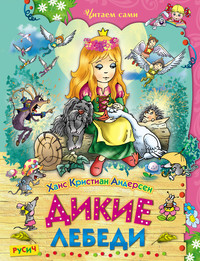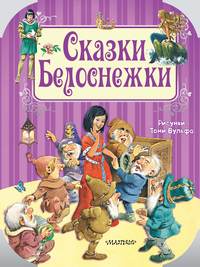 полная версия
полная версияWhat the Moon Saw: and Other Tales
He uttered some holy names, and made the sign of the cross; and when the form remained motionless at his side, he said,
"Who art thou? Whence this animal shape that thou bearest, while yet thou art full of gentle mercy?"
The frog-woman beckoned him to follow, and led him through corridors shrouded with curtains, into the stables, and there pointed to a horse. He mounted on its back; but she also sprang up before him, holding fast by the horse's mane. The prisoner understood her meaning, and in a rapid trot they rode on a way which he would never have found, out on to the open heath.
He thought not of her hideous form, but felt how the mercy and loving-kindness of the Almighty were working by means of this monstrous apparition; he prayed pious prayers, and sang songs of praise. Then she trembled. Was it the power of song and of prayer that worked in her, or was she shuddering at the cold morning twilight that was approaching? What were her feelings? She raised herself up, and wanted to stop the horse and to alight; but the Christian priest held her back with all his strength, and sang a pious song, as if that would have the power to loosen the charm that turned her into the hideous semblance of a frog. And the horse gallopped on more wildly than ever; the sky turned red, the first sunbeam pierced through the clouds, and as the flood of light came streaming down, the frog changed its nature. Helga was again the beautiful maiden with the wicked, demoniac spirit. He held a beautiful maiden in his arms, but was horrified at the sight: he swung himself from the horse, and compelled it to stand. This seemed to him a new and terrible sorcery; but Helga likewise leaped from the saddle, and stood on the ground. The child's short garment reached only to her knee. She plucked the sharp knife from her girdle, and quick as lightning she rushed in upon the astonished priest.
"Let me get at thee!" she screamed; "let me get at thee, and plunge this knife in thy body! Thou art pale as straw, thou beardless slave!"
She pressed in upon him. They struggled together in a hard strife, but an invisible power seemed given to the Christian captive. He held her fast; and the old oak tree beneath which they stood came to his assistance; for its roots, which projected over the ground, held fast the maiden's feet that had become entangled in it. Quite close to them gushed a spring; and he sprinkled Helga's face and neck with the fresh water, and commanded the unclean spirit to come forth, and blessed her in the Christian fashion; but the water of faith has no power when the well-spring of faith flows not from within.
And yet the Christian showed his power even now, and opposed more than the mere might of a man against the evil that struggled within the girl. His holy action seemed to overpower her: she dropped her hands, and gazed with frightened eyes and pale cheeks upon him who appeared to her a mighty magician learned in secret arts; he seemed to her to speak in a dark Runic tongue, and to be making cabalistic signs in the air. She would not have winked had he swung a sharp knife or a glittering axe against her; but she trembled when he signed her with the sign of the cross on her brow and her bosom, and she sat there like a tame bird with bowed head.
Then he spoke to her in gentle words of the kindly deed she had done for him in the past night, when she came to him in the form of the hideous frog, to loosen his bonds, and to lead him out to life and light; and he told her that she too was bound in closer bonds than those that had confined him, and that she should be released by his means. He would take her to Hedeby (Schleswig), to the holy Ansgarius, and yonder in the Christian city the spell that bound her would be loosed. But he would not let her sit before him on the horse, though of her own accord she offered to do so.
"Thou must sit behind me, not before me," he said. "Thy magic beauty hath a power that comes of evil, and I fear it; and yet I feel that the victory is sure to him who hath faith."
And he knelt down and prayed fervently. It seemed as though the woodland scenes were consecrated as a holy church by his prayer. The birds sang as though they belonged to the new congregation, the wild flowers smelt sweet as incense; and while he spoke the horse that had carried them both in headlong career stood still before the tall bramble bushes, and plucked at them, so that the ripe juicy berries fell down upon Helga's hands, offering themselves for her refreshment.
Patiently she suffered the priest to lift her on the horse, and sat like a somnambulist, neither completely asleep nor wholly awake. The Christian bound two branches together with bark, in the form of a cross, which he held up high as they rode through the forest. The wood became thicker as they went on, and at last became a trackless wilderness.
The wild sloe grew across the way, so that they had to ride round the bushes. The bubbling spring became not a stream but a standing marsh, round which likewise they were obliged to lead the horse. There was strength and refreshment in the cool forest breeze; and no small power lay in the gentle words, which were spoken in faith and in Christian love, from a strong inward yearning to lead the poor lost one into the way of light and life.
They say the rain-drops can hollow the hard stone, and the waves of the sea can smooth and round the sharp edges of the rocks. Thus did the dew of mercy, that dropped upon Helga, smooth what was rough, and penetrate what was hard in her. The effects did not yet appear, nor was she aware of them herself; but doth the seed in the bosom of earth know, when the refreshing dew and the quickening sunbeams fall upon it, that it hath within itself the power of growth and blossoming? As the song of the mother penetrates into the heart of the child, and it babbles the words after her, without understanding their import, until they afterwards engender thought, and come forward in due time clearer and more clearly, so here also did the Word work, that is powerful to create.
They rode forth from the dense forest, across the heath, and then again through pathless roads; and towards evening they encountered a band of robbers.
"Where hast thou stolen that beauteous maiden?" cried the robbers; and they seized the horse's bridle, and dragged the two riders from its back. The priest had no weapon save the knife he had taken from Helga; and with this he tried to defend himself. One of the robbers lifted his axe to slay him, but the young priest sprang aside and eluded the blow, which struck deep into the horse's neck, so that the blood spurted forth, and the creature sank down on the ground. Then Helga seemed suddenly to wake from her long reverie, and threw herself hastily upon the gasping animal. The priest stood before her to protect and defend her, but one of the robbers swung his iron hammer over the Christian's head, and brought it down with such a crash that blood and brains were scattered around, and the priest sank to the earth, dead.
Then the robber's seized beautiful Helga by her white arms and her slender waist; but the sun went down, and its last ray disappeared at that moment, and she was changed into the form of a frog. A white-green mouth spread over half her face, her arms became thin and slimy, and broad hands with webbed fingers spread out upon them like fans. Then the robbers were seized with terror, and let her go. She stood, a hideous monster, among them; and as it is the nature of the frog to do, she hopped up high, and disappeared in the thicket. Then the robbers saw that this must be a bad prank of the spirit Loke, or the evil power of magic, and in great affright they hurried away from the spot.
The full moon was already rising. Presently it shone with splendid radiance over the earth, and poor Helga crept forth from the thicket in the wretched frog's shape. She stood still beside the corpse of the priest and the carcase of the slain horse. She looked at them with eyes that appeared to weep, and from the frog-mouth came forth a croaking like the voice of a child bursting into tears. She leant first over the one, then over the other, brought water in her hollow hand, which had become larger and more capacious by the webbed skin, and poured it over them; but dead they were, and dead they would remain, she at last understood. Soon wild beasts would come and tear their dead bodies; but no, that must not be! so she dug up the earth as well as she could, in the endeavour to prepare a grave for them. She had nothing to work with but a stake and her two hands encumbered with the webbed skin that grew between the fingers, and which were torn by the labour, so that the blood flowed over them. At last she saw that her endeavours would not succeed. Then she brought water and washed the dead man's face, and covered it with fresh green leaves; she brought green boughs and laid them upon him, scattering dead leaves in the spaces between. Then she brought the heaviest stones she could carry and laid them over the dead body, stopping up the interstices with moss. And now she thought the grave-hill would be strong and secure. The night had passed away in this difficult work – the sun broke through the clouds, and beautiful Helga stood there in all her loveliness, with bleeding hands, and with the first tears flowing that had ever bedewed her maiden cheeks.
Then in this transformation it seemed as if two natures were striving within her. Her whole frame trembled, and she looked around, as if she had just awoke from a troubled dream. Then she ran towards the slender tree, clung to it for support, and in another moment she had climbed to the summit of the tree, and held fast. There she sat like a startled squirrel, and remained the whole day long in the silent solitude of the wood, where everything is quiet, and, as they say, dead. Butterflies fluttered around in sport, and in the neighbourhood were several ant-hills, each with its hundreds of busy little occupants moving briskly to and fro. In the air danced a number of gnats, swarm upon swarm, and hosts of buzzing flies, lady-birds, gold beetles, and other little winged creatures; the worm crept forth from the damp ground, the moles came out; but except these all was silent around – silent, and, as people say, dead – for they speak of things as they understand them. No one noticed Helga, but some flocks of crows, that flew screaming about the top of the tree on which she sat: the birds hopped close up to her on the twigs with pert curiosity; but when the glance of her eye fell upon them, it was a signal for their flight. But they could not understand her – nor, indeed, could she understand herself.
When the evening twilight came on, and the sun was sinking, the time of her transformation roused her to fresh activity. She glided down from the tree, and as the last sunbeam vanished she stood in the wrinkled form of the frog, with the torn webbed skin on her hands; but her eyes now gleamed with a splendour of beauty that had scarcely been theirs when she wore her garb of loveliness, for they were a pair of pure, pious, maidenly eyes that shone out of the frog-face. They bore witness of depth of feeling, of the gentle human heart; and the beauteous eyes overflowed in tears, weeping precious drops that lightened the heart.
On the sepulchral mound she had raised there yet lay the cross of boughs, the last work of him who slept beneath. Helga lifted up the cross, in pursuance of a sudden thought that came upon her. She planted it upon the burial mound, over the priest and the dead horse. The sorrowful remembrance of him called fresh tears into her eyes; and in this tender frame of mind she marked the same sign in the sand around the grave; and as she wrote the sign with both her hands, the webbed skin fell from them like a torn glove; and when she washed her hands in the woodland spring, and gazed in wonder at their snowy whiteness, she again made the holy sign in the air between herself and the dead man; then her lips trembled, the holy name that had been preached to her during the ride from the forest came to her mouth, and she pronounced it audibly.
Then the frog-skin fell from her, and she was once more the beauteous maiden. But her head sank wearily, her tired limbs required rest, and she fell into a deep slumber.
Her sleep, however, was short. Towards midnight she awoke. Before her stood the dead horse, beaming and full of life, which gleamed forth from his eyes and from his wounded neck; close beside the creature stood the murdered Christian priest, "more beautiful than Bulder," the Viking woman would have said; and yet he seemed to stand in a flame of fire.
Such gravity, such an air of justice, such a piercing look shone out of his great mild eyes, that their glance seemed to penetrate every corner of her heart. Beautiful Helga trembled at the look, and her remembrance awoke as though she stood before the tribunal of judgment.
Every good deed that had been done for her, every loving word that had been spoken, seemed endowed with life: she understood that it had been love that kept her here during the days of trial, during which the creature formed of dust and spirit, soul and earth, combats and struggles; she acknowledged that she had only followed the leading of temper, and had done nothing for herself; everything had been given her, everything had happened as it were by the interposition of Providence. She bowed herself humbly, confessing her own deep imperfection in the presence of the Power that can read every thought of the heart – and then the priest spoke.
"Thou daughter of the moorland," he said, "out of the earth, out of the moor, thou camest; but from the earth thou shalt arise. I come from the land of the dead. Thou, too, shalt pass through the deep valleys into the beaming mountain region, where dwell mercy and completeness. I cannot lead thee to Hedeby, that thou mayest receive Christian baptism; for, first, thou must burst the veil of waters over the deep moorland, and draw forth the living source of thy being and of thy birth; thou must exercise thy faculties in deeds before the consecration can be given thee."
And he lifted her upon the horse, and gave her a golden censer similar to the one she had seen in the Viking's castle. The open wound in the forehead of the slain Christian shone like a diadem. He took the cross from the grave and held it aloft. And now they rode through the air, over the rustling wood, over the hills where the old heroes lay buried, each on his dead war-horse; and the iron figures rose up and gallopped forth, and stationed themselves on the summits of the hills. The golden hoop on the forehead of each gleamed in the moonlight, and their mantles floated in the night breeze. The dragon that guards buried treasures likewise lifted up his head and gazed after the riders. The gnomes and wood-spirits peeped forth from beneath the hills and from between the furrows of the fields, and flitted to and fro with red, blue, and green torches, like the sparks in the ashes of a burnt paper.
Over woodland and heath, over river and marsh they fled away, up to the wild moor; and over this they hovered in wide circles. The Christian priest held the cross aloft; it gleamed like gold; and from his lips dropped pious prayers. Beautiful Helga joined in the hymns he sang, like a child joining in its mother's song. She swung the censer, and a wondrous fragrance of incense streamed forth thence, so that the reeds and grass of the moor burst forth into blossom. Every germ came forth from the deep ground. All that had life lifted itself up. A veil of water-lilies spread itself forth like a carpet of wrought flowers, and upon this carpet lay a sleeping woman, young and beautiful. Helga thought it was her own likeness she saw upon the mirror of the calm waters. But it was her mother whom she beheld, the moor king's wife, the princess from the banks of the Nile.
The dead priest commanded that the slumbering woman should be lifted upon the horse; but the horse sank under the burden, as though its body had been a cloth fluttering in the wind. But the holy sign gave strength to the airy phantom, and then the three rode from the moor to the firm land.
Then the cock crowed in the Viking's castle, and the phantom shapes dissolved and floated away in air; but mother and daughter stood opposite each other.
"Am I really looking at my own image from beneath the deep waters?" asked the mother.
"Is it myself that I see reflected on the clear mirror?" exclaimed the daughter.
And they approached one another, and embraced. The heart of the mother beat quickest, and she understood the quickening pulses.
"My child! thou flower of my own heart! my lotos-flower of the deep waters!"
And she embraced her child anew, and wept; and the tears were as a new baptism of life and love to Helga.
"In the swan's plumage came I hither," said the mother; "and here also I threw off my dress of feathers. I sank through the shaking moorland, far down into the black slime, which closed like a wall around me. But soon I felt a fresher stream; a power drew me down, deeper and ever deeper. I felt the weight of sleep upon my eyelids; I slumbered, and dreams hovered round me. It seemed to me that I was again in the pyramid in Egypt, and yet the waving willow trunk that had frightened me up in the moor was ever before me. I looked at the clefts and wrinkles in the stem, and they shone forth in colours, and took the form of hieroglyphics: it was the case of the mummy at which I was gazing; at last the case burst, and forth stepped the thousand-year-old king, the mummied form, black as pitch, shining black as the wood-snail or the fat mud of the swamp; whether it was the marsh king or the mummy of the pyramids I knew not. He seized me in his arms, and I felt as if I must die. When I returned to consciousness a little bird was sitting on my bosom, beating with its wings, and twittering and singing. The bird flew away from me up towards the heavy, dark covering; but a long green band still fastened him to me. I heard and understood his longing tones: 'Freedom! Sunlight! to my father!' Then I thought of my father and the sunny land of my birth, my life, and my love; and I loosened the band and let the bird soar away home to the father. Since that hour I have dreamed no more. I have slept a sleep, a long and heavy sleep, till within this hour; harmony and incense awoke me and set me free."
The green band from the heart of the mother to the bird's wings, where did it flutter now? whither had it been wafted? Only the stork had seen it. The band was the green stalk, the bow at the end, the beauteous flower, the cradle of the child that had now bloomed into beauty, and was once more resting on its mother's heart.
And while the two were locked in each other's embrace, the old stork flew around them in smaller and smaller circles, and at length shot away in swift flight towards his nest, whence he brought out the swan-feather suits he had preserved there for years, throwing one to each of them, and the feathers closed around them, so that they soared up from the earth in the semblance of two white swans.
"And now we will speak with one another," quoth stork-papa, "now we understand each other, though the beak of one bird is differently shaped from that of another. It happens more than fortunately that you came to-night. To-morrow we should have been gone – mother, myself, and the young ones; for we're flying southward. Yes, only look at me! I am an old friend from the land of the Nile, and mother has a heart larger than her beak. She always declared the princess would find a way to help herself; and I and the young ones carried the swan's feathers up here. But how glad I am! and how fortunate that I'm here still! At dawn of day we shall move hence, a great company of storks. We'll fly first, and do you follow us; thus you cannot miss your way; moreover, I and the youngsters will keep a sharp eye upon you."
"And the lotos-flower which I was to bring with me," said the Egyptian princess, "she is flying by my side in the swan's plumage! I bring with me the flower of my heart; and thus the riddle has been read. Homeward! homeward!"
But Helga declared she could not quit the Danish land before she had once more seen her foster-mother, the affectionate Viking woman. Every beautiful recollection, every kind word, every tear that her foster-mother had wept for her, rose up in her memory, and in that moment she almost felt as if she loved the Viking woman best of all.
"Yes, we must go to the Viking's castle," said stork-papa; "mother and the youngsters are waiting for us there. How they will turn up their eyes and flap their wings! Yes, you see mother doesn't speak much – she's short and dry, but she means all the better. I'll begin clapping at once, that they may know we're coming." And stork-papa clapped in first-rate style, and they all flew away towards the Viking's castle.
In the castle every one was sunk in deep sleep. The Viking's wife had not retired to rest until it was late. She was anxious about Helga, who had vanished with a Christian priest three days before: she knew Helga must have assisted him in his flight, for it was the girl's horse that had been missed from the stables; but how all this had been effected was a mystery to her. The Viking woman had heard of the miracles told of the Christian priest, and which were said to be wrought by him and by those who believed in his words and followed him. Her passing thoughts formed themselves into a dream, and it seemed to her that she was still lying awake on her couch, and that deep darkness reigned without. The storm drew near: she heard the sea roaring and rolling to the east and to the west, like the waves of the North Sea and the Cattegat. The immense snake which was believed to surround the span of the earth in the depths of the ocean was trembling in convulsions; she dreamed that the night of the fall of the gods had come – Ragnarok, as the heathen called the last day, when everything was to pass away, even the great gods themselves. The war-trumpet sounded, and the gods rode over the rainbow, clad in steel, to fight the last battle. The winged Valkyrs rode before them, and the dead warriors closed the train. The whole firmament was ablaze with northern lights, and yet the darkness seemed to predominate. It was a terrible hour.
And close by the terrified Viking woman Helga seemed to be crouching on the floor in the hideous frog form, trembling and pressing close to her foster-mother, who took her on her lap and embraced her affectionately, hideous though she was. The air resounded with the blows of clubs and swords, and with the hissing of arrows, as if a hailstorm were passing across it. The hour was come when earth and sky were to burst, the stars to fall, and all things to be swallowed up in Surtur's sea of fire; but she knew that there would be a new heaven and a new earth, that the corn fields then would wave where now the ocean rolled over the desolate tracts of sand, and that the unutterable God would reign; and up to Him rose Bulder the gentle, the affectionate, delivered from the kingdom of the dead; he came; the Viking woman saw him, and recognized his countenance; it was that of the captive Christian priest. "White Christian!" she cried aloud, and with these words she pressed a kiss upon the forehead of the hideous frog-child. Then the frog-skin fell off, and Helga stood revealed in all her beauty, lovely and gentle as she had never appeared, and with beaming eyes. She kissed her foster-mother's hands, blessed her for all the care and affection lavished during the days of bitterness and trial, for the thought she had awakened and cherished in her, for naming the name, which she repeated, "White Christian;" and beauteous Helga arose in the form of a mighty swan, and spread her white wings with a rushing like the sound of a troop of birds of passage winging their way through the air.
The Viking woman woke; and she heard the same noise without still continuing. She knew it was the time for the storks to depart, and that it must be those birds whose wings she heard. She wished to see them once more, and to bid them farewell as they set forth on their journey. Therefore she rose from her couch and stepped out upon the threshold, and on the top of the gable she saw stork ranged behind stork, and around the castle, over the high trees, flew bands of storks wheeling in wide circles; but opposite the threshold where she stood, by the well where Helga had often sat and alarmed her with her wildness, sat two white swans gazing at her with intelligent eyes. And she remembered her dream, which still filled her soul as if it were reality. She thought of Helga in the shape of a swan, and of the Christian priest; and suddenly she felt her heart rejoice within her.


